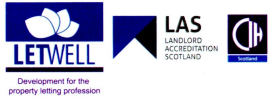The weather has turned, and winter is on the way, bringing with it a chilling collection of potential problems at your rental property.
In many ways, rental homes are more at risk when they’re occupied in winter because the daily lives and concerns of tenants can sometimes be at odds with the interests of landlords.
So this week’s blog is all about getting that balance right, with measures like:
- Keeping condensation, mould and damp at bay.
- Maintaining smoke alarms and carbon monoxide detectors.
- Combining cost savings on bills with conscious property care.
- Reducing the risks of water damage and ice.
- Planning ahead in case your tenants go on holiday.
To ensure our landlords don’t get caught out by the cold, we check these things at all the homes we manage as part of our scheduled mid-tenancy inspections.
However, if you’re looking after things yourself, share this blog with your tenants so you can work together for a warm and safe winter all round.
CLEAR THE AIR
With the heating cranked up and cold weather outside, conditions are perfect for condensation to form, so it’s a wise precaution to drop your tenants some tips to help them avoid damp and mildew.
- Remind them not to dry wet clothes on radiators as the humidity can lead to mould on the walls (and their clothes!)
- If your windows have trickle vents, let your tenants know they should stay open all year round. Otherwise, encourage them to open the windows once a week to refresh the air.
- Reduce humidity by using the extractor over the hob, opening a window slightly during and after showering, and keeping bedroom windows a tiny bit open at night so moist air can escape.
If any of these are impractical in your property, investing in a dehumidifier could prove more than worth the cost by avoiding far more expensive jobs from a build-up of mould and damp.
CATCH THE FLUE
As the cold weather bites and people stay in, cook, and turn up the heat, the potential for smoke and fumes increases, so follow these simple steps to put safety first.
- Check that all smoke and carbon monoxide detectors are working (landlords are responsible for this on the day a new tenancy starts, while tenants should do a monthly check and report faults later on).
- Remind your tenants that when detectors start beeping regularly, it means their batteries are running out and should be replaced (and not just removed).
- If your tenants say the detectors go off a lot, ask them if the toaster, oven or cookware needs a good scrub, as longstanding food residue will burn and smoke.
As a reminder, every rental home must have smoke alarms fitted on every floor of accommodation, and carbon monoxide detectors in rooms with combusting appliances like gas boilers or log-burning stoves.
EMBRACE THE HEAT
While gas and electricity bills are less than last year’s peak, the cost is still a big concern for many tenants, so here are some ways they can use less energy without causing property problems.
- Ask if they’ve noticed any drafts, as you may be able to fit inexpensive draft excluders to doors, windows, keyholes and letterboxes that will keep their home warmer.
- Move any furniture that’s directly in front of radiators – reduces their efficiency and requires more energy use to stay warm.
- Keep internal doors closed so the heating can work more effectively, and use the timer and thermostats if your property has them.
- Use energy-sapping appliances like washing machines, dishwashers and tumble driers at night when tariffs are lower.
- If your rental property has gas heating with radiators, show your tenants how to bleed them so all the air comes out for maximum output and efficiency.
Tenants may not realise that keeping rooms unheated in winter could cause damage to your property and cost them cash, so help them to make choices that work for everyone.
HOLD BACK THE RAIN
Winter brings harsher conditions for the outside of your property, but your tenant’s attention will understandably go to keeping warm indoors, so it’s worth checking the following:
- Do any gutters look blocked with fallen leaves? It’s a common occurrence at this time of year that can lead to overflow and penetrating water, but they’re easily cleared.
- Have any roof tiles or slates slipped or fallen off in the recent storms? Replace them now to avoid rain (and possibly snow) pouring in and causing damage.
- Encourage your tenants to regularly sweep fallen leaves off front paths as they can become slippery with rain or ice.
You could make these checks yourself, or you could ask us to take care of it all. Call Richard Cook on 0790 909 3141 to see how we help our landlords stay ahead of potential problems, and how we can do the same for you.
GEAR UP FOR GOING AWAY
More burglaries happen in the darker months, and tenants often head off during the Christmas holidays. This makes homes more vulnerable, so here are some precautions to take.
- Make sure any external lighting works, and if the approach is dark, fit a battery-powered lamp with a motion sensor to increase visibility and deter intruders.
- If your tenants do plan to head off for the holidays, give them a checklist to leave your property secure (unlocked doors and windows respectively account for 21% and 29% of burglaries).
- Recommend keeping the heating on low, either for an hour or so at night when it’s coldest, or with the thermostat set to around 12 degrees to keep off the freeze without wasting energy.
While most homes get through the winter without burglaries or frozen pipes, it’s better to be safe than sorry. At the very least, there’s no point tempting fate.
Is your rental property ready for the winter?
We’d love to help you keep your property and tenants warm and safe during the cold season, and save you from unwelcome surprises and expense.
If you own a property to rent, call Richard Cook on 0790 909 3141 or email him at richard.cook@fifeproperties.co.uk for a friendly and expert chat.


